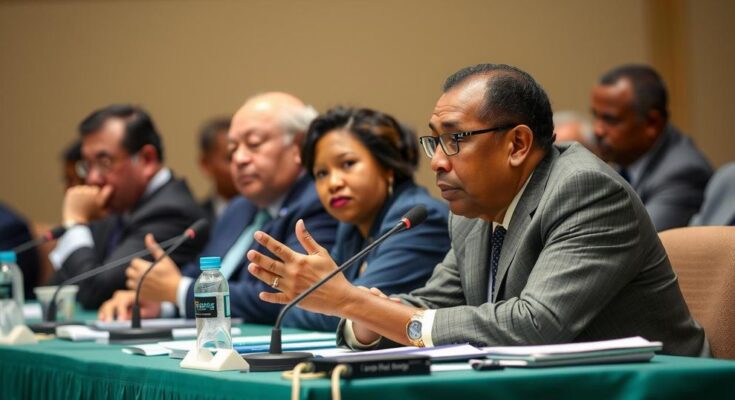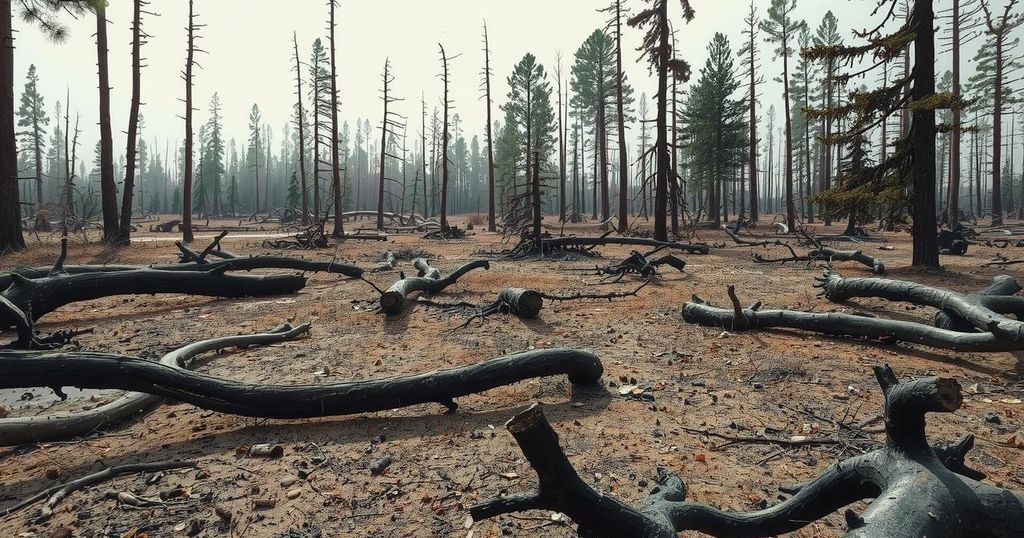Papua New Guinea’s Prime Minister, James Marape, has committed to rejoining UN climate talks after boycotting the 2023 discussions in Azerbaijan. Emphasizing forest conservation, he argues it must take precedence in future summits. Papua New Guinea supports an Australian bid to co-host COP31 in 2026, contingent on prioritizing forest management in climate negotiations. The country, recognized as a vital ecological region, faces significant challenges from climate change while pursuing accountability from polluters.
Papua New Guinea’s Prime Minister, James Marape, announced on Tuesday that the nation plans to return to the United Nations climate summits after its boycott of this year’s talks. The Prime Minister instructed that the safeguarding of forests should receive greater emphasis at the upcoming COP30 summit in Brazil, highlighting the pivotal role of forestry in mitigating carbon emissions. He expressed that previous climate discussions had been futile, urging a focus on environmental conservation as essential to effective climate action.
The Prime Minister’s comments came in the wake of Papua New Guinea’s decision to skip the climate talks held in Azerbaijan last year, which drew criticism from government officials who deemed the meetings unproductive. Marape underscored the necessity for carbon-intensive countries to compensate for forest conservation efforts, linking forestry to their ecological significance in the battle against climate change. He stated, “It is the forestry that clears the atmosphere of carbon and carbon footprints. Forestry is close to our heart.”
In addition to committing to participate in international discussions, Papua New Guinea expressed support for an Australian bid to co-host COP31 in 2026, contingent upon forest conservation being a central focus of the negotiations. With vast rainforests that have gained recognition as crucial ecological resources, Papua New Guinea aims to leverage its unique position during these international dialogues to advocate for vulnerable nations affected by climate change.
Historically, the island of New Guinea is recognized as host to one of the world’s largest expanses of rainforest, deemed the “lungs of the Earth” by conservationists. However, the nation faces significant threats from climate change, compounded by natural disasters and socio-economic challenges. Furthermore, alongside other Pacific nations, Papua New Guinea is currently involved in a landmark International Court of Justice case that seeks to hold major polluters accountable for climate inaction. Australia’s delayed bid to host COP31, hampered by competing interests, adds to the complexity of the international climate agenda, which aims to secure binding commitments from participating countries.
The recent interactions surrounding Papua New Guinea at UN climate summits reflect broader concerns over global climate policy and the role of forestry in carbon management. Forests are crucial in absorbing carbon dioxide, and Pacific nations, including Papua New Guinea, have increasingly positioned themselves as vital stakeholders in climate discussions due to their ecological significance and vulnerability. As global awareness of climate change heightens, these nations advocate for meaningful commitments that recognize their contributions to environmental sustainability. The recurring focus on their tropical rainforests illustrates their commitment to protecting natural resources against industrial pollution and climate-related threats.
In conclusion, Prime Minister James Marape’s vow for Papua New Guinea to re-engage with UN climate talks places significant emphasis on the importance of forestry conservation as part of climate strategies. The Prime Minister’s firm stance reflects a broader movement amongPacific nations advocating for accountability from industrialized countries, urging that their ecological contributions are recognized and valued in international climate agreements. As discussions progress towards COP30 in Brazil and potential co-hosting of COP31, the role of forest conservation will undoubtedly remain a central theme in negotiations.
Original Source: www.france24.com




